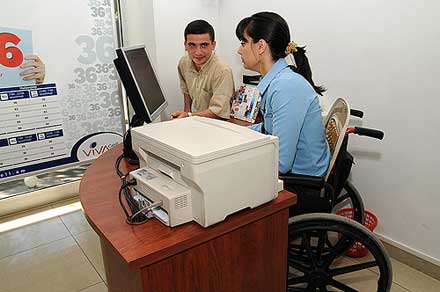


|
|
| Employment |
The Republic of Armenia provides regulation of labor relations aimed at benefiting both an employee and an employer. These regulations give an opportunity to workers with disabilities to work part-time (part-day or part-week), at their request, and based on their medical certificate. Moreover, the law articulates that people with disabilities may work any hours (day or night) as long as it is not a risk to their medical/health condition.
People with disabilities within the 1st and 2nd groups are allowed to work a maximum of 36 hours per week. No trial period is allowed for employees with disabilities. In the event of an employer scaling back on the number of employees, people with disabilities (in the case of equal productivity and qualifications, as compared with their non-disabled colleagues), are given preference to job security under the law. Republic of Armenia Government Resolution # 996-N of July 13, 2006, On the ratification of the procedure, size and terms of the salary reimbursement with the purpose of support for placing noncompetitive persons in the labor market stipulates that for each employed person with a disability, partial reimbursement shall be provided to an employer at the rate of 50 percent of the fixed salary, up to the amount of the minimal monthly salary established in Armenia (currently, AMD 25,000). The duration of the salary reimbursement for employers of people with disabilities within the 1st and 2nd groups is two years, and one year for other noncompetitive persons. Republic of Armenia Government Decision # 533-N of March 30, 2006, On the ratification of the order of the organization of professional training for unemployed noncompetitive groups in the labor market and unemployed job seekers receiving long service and preferential pensions, also promotes inclusion of people with disabilities in the labor market. This Decision provides for job training courses for unemployed job seekers, including people with disabilities. The duration of the job training courses may not exceed three months, except in the case of a preliminary training and/or handicraft study course, which may last up to six months. A stipend is paid to people with disabilities during this entire period of training. |